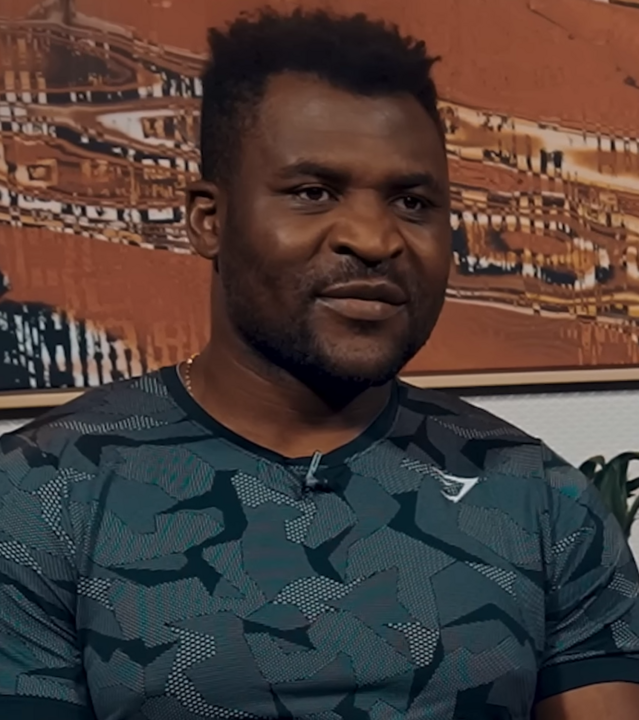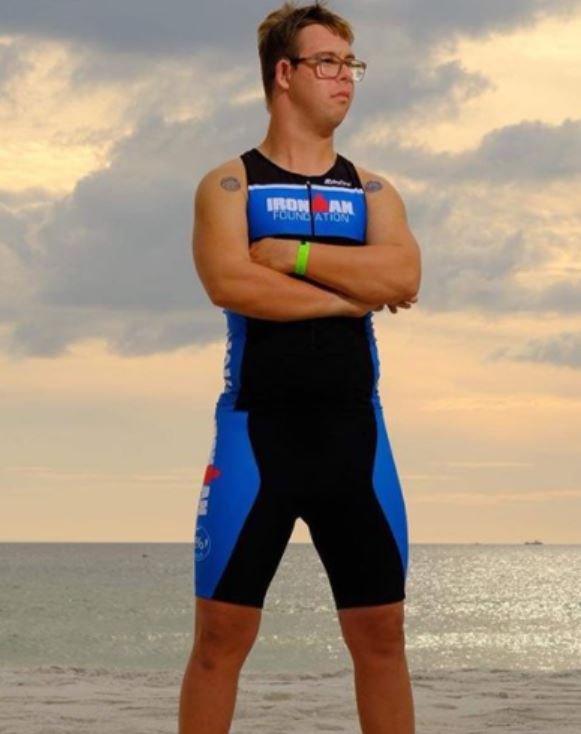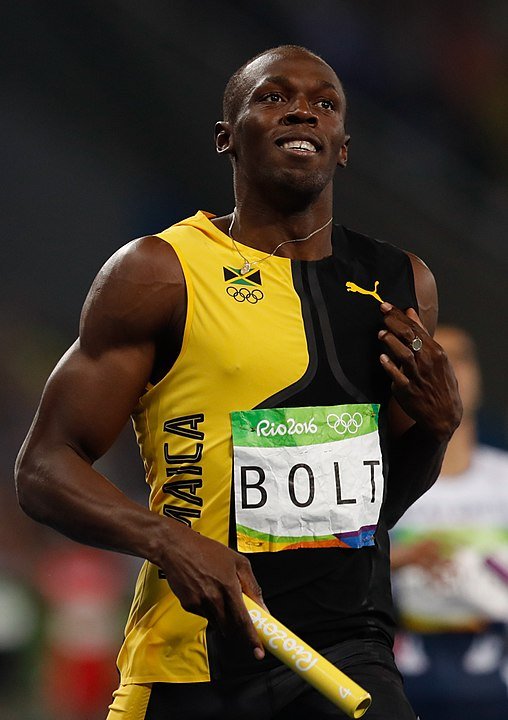In the unforgiving octagon where giants collide, few stories resonate with the raw power of human perseverance like that of Francis Ngannou. His hands, capable of generating the equivalent force of a small car crash, were once calloused not from striking opponents but from digging in sand quarries as a child. His journey – spanning continents, deserts, prison cells, and homelessness – stands as a testament to the indomitable human spirit that refuses to be defined by circumstance.
Francis Ngannou’s Early Beginnings
The story of “The Predator” begins in Batié, a small village in western Cameroon where Francis Ngannou was born on September 5, 1986. Far removed from the bright lights of Las Vegas arenas, Batié offered little beyond struggle and hardship. As ESPN reported, Ngannou’s childhood existed in the shadow of crushing poverty – a reality that shaped both his physical strength and mental fortitude.
A Childhood Defined by Hardship
By age 10, education had become a luxury Ngannou couldn’t afford. Instead of attending school, he found himself toiling in sand quarries, his young shoulders already bearing adult responsibilities. The work was backbreaking – shoveling sand for hours under the merciless Cameroonian sun – yet it forged in him a physical resilience that would later become his trademark in the octagon.
“I never had a childhood dream,” Francis Ngannou once told the media. “Where I’m from, you don’t dream. You just survive.”
The absence of running water, reliable electricity, and basic necessities was the daily reality for the young Ngannou. Meals were uncertain; opportunity seemed nonexistent. Yet even in this environment of scarcity, a seed of ambition took root.
The Birth of an Impossible Dream
Despite having never seen a boxing match in person, Francis Ngannou found inspiration in the stories of Mike Tyson that filtered into his village. Something about Tyson’s ferocity and rise from adversity resonated with the young Cameroonian. He began to envision a life beyond the quarry – one where his fists would earn respect rather than merely subsistence.
Local elders scoffed at his aspirations. “Fighting is not a career,” they would say. “It’s just a way to get yourself killed.” In a community where immediate survival took precedence over dreams, Ngannou’s boxing ambitions seemed foolishly impractical.
Without trainers, equipment, or even a proper place to train, Ngannou improvised. He shadow-boxed after exhausting days of manual labor, studied boxing techniques from tattered magazines, and strengthened his body through the grueling physical demands of quarry work. What he lacked in technical training, he compensated for with a vision that extended beyond the horizons of Batié.
By his mid-twenties, Ngannou faced a critical decision that would alter the trajectory of his life. Remain in Cameroon with diminishing prospects or risk everything on a dangerous journey toward possibility. With less than nothing to lose, he chose the latter.
Overcoming Adversity: Francis Ngannou’s Battle with Displacement and Survival
At age 26, armed with nothing but determination and the clothes on his back, Francis Ngannou embarked on what would become one of the most harrowing migrant journeys documented in sports history. His destination: Europe, where he believed his boxing dreams might find fertile ground.
A Treacherous 3,000-Mile Odyssey Across the Sahara
In 2012, Ngannou began what would become a 14-month odyssey across the African continent. As The Guardian detailed, his route cut through Nigeria, Niger, and Algeria – countries fraught with political instability, harsh terrain, and dangers for migrants.
The Sahara Desert portion of his journey presented challenges that would break most people. Temperatures soared above 120°F during the day before plummeting at night. Water was scarce. Food, scarcer still. Francis Ngannou traveled by foot, by overcrowded vehicles, and sometimes by simply following footprints in the sand.
“People die in the desert,” Ngannou recounted to the media. “They get lost. The smugglers don’t care if you live or die. If you can’t keep up, they leave you. I saw people abandoned, their bodies left to be covered by the sand.”
On multiple occasions, Francis Ngannou was robbed of his meager possessions. Once, bandits took his shoes, forcing him to walk barefoot across scorching sands. Dehydration, starvation, and exposure were constant companions. Yet something within him – the same force that would later drive him through punishing training sessions and championship fights – refused to surrender.
Imprisonment and the Mediterranean Crossing
After months traversing the desert, Francis Ngannou reached Morocco, where the Mediterranean Sea stood as the final barrier between him and Europe. Here, his journey stalled as he made multiple failed attempts to cross. Border police repeatedly intercepted him, sometimes with violence. Each failure meant starting again, rebuilding minimal resources, and sustaining the fragile hope that kept him moving forward.
Six times he attempted to cross into Spain. Six times he was caught and returned to Morocco.
On the seventh attempt, using a makeshift inflatable raft overcrowded with fellow migrants, Ngannou finally reached Spanish soil in 2013. His momentary triumph was short-lived. Spanish authorities promptly arrested him for illegal entry, and he spent two months in a detention center in Ceuta.
“In prison, I had to decide who I wanted to be,” Francis Ngannou later told ESPN. “Would I let this break me, or would I use it to make me stronger?”
A Turning Point: Finding Strength in Adversity
The prison walls that confined Ngannou’s body could not constrain his resolve. He used his detention time for introspection and physical conditioning, doing push-ups and improvised exercises in his cell. When Spanish authorities finally released him, rather than deporting him back to Cameroon, they allowed him to continue to France.
Arriving in Paris in June 2013, Ngannou found himself homeless in a foreign city. He spoke no French, had no money, and possessed no documentation. For weeks, he slept in a parking lot, washing in public facilities and scrounging for food. During this period of absolute rock bottom, lesser spirits might have conceded defeat. Ngannou simply saw it as another obstacle on a path that had never been easy.
“The journey taught me that humans can endure far more than we think possible,” Ngannou reflected. “When you have nothing left to lose, you discover what you’re truly made of.”
This mindset – forged through surviving impossible odds – would prove invaluable as Ngannou stood on the precipice of yet another transformation.
Francis Ngannou’s Pivotal Moments: From Homeless Migrant to UFC Stardom
The distance between sleeping in a Parisian parking garage and standing in the UFC octagon as heavyweight champion seems immeasurable. Yet Francis Ngannou traversed this improbable path in less than a decade, proving that determination can compress time and defy probability.
Finding His Fighting Home
Ngannou’s turning point came through a chance encounter that seems almost divinely orchestrated in retrospect. Homeless and desperate, he wandered into a French boxing gym seeking to pursue his original fighting dream. There, he met Fernand Lopez, head coach at the MMA Factory, who immediately recognized something special in the physically imposing but technically raw African.
“When I first saw Francis, I knew he had natural power unlike anything I’d seen before,” Lopez told once remembering the first day he saw Francis in training.. “But more importantly, he had hunger in his eyes—the look of someone who would do absolutely anything to succeed.”
Though Francis Ngannou had come seeking boxing training, Lopez convinced him to try mixed martial arts instead. Starting from zero, Ngannou slept on a mat at the gym while absorbing fighting techniques like a sponge. His days consisted entirely of training, helping around the gym, and occasionally working at a recycling center to earn minimal income.
Despite beginning MMA training at age 27 – considered late by professional standards – Ngannou’s progress was meteoric. Within just months of his first training session, he competed in his first amateur bout. By November 2013, merely five months after beginning training, he made his professional MMA debut, winning via submission.
Rapid Rise to the Ultimate Fighting Championship
What followed was one of the fastest ascensions in MMA history. Fighting primarily in the French and European regional circuits, Ngannou compiled an impressive 5-1 record in less than two years. His fights rarely lasted long – his devastating punching power ended contests quickly, often spectacularly.
In December 2015, the UFC signed Francis Ngannou, bringing him to the world’s premier MMA organization. His UFC debut against Luis Henrique resulted in a second-round knockout that announced his arrival on the global stage. As BBC Sport noted, what followed was a streak of finishes that sent shockwaves through the heavyweight division.
Between 2016 and 2018, Ngannou demolished established UFC heavyweights Curtis Blaydes, Andrei Arlovski, and Alistair Overeem – the latter via a knockout so violent it became viral highlight-reel material. The Overeem knockout, in particular, demonstrated the raw power that made Ngannou a phenomenon. According to UFC measurements, his punches generated 129,161 units on their PowerKube device – a record that still stands.
Learning Through Defeat
Ngannou’s first title shot came in January 2018 against then-champion Stipe Miocic. The fight exposed gaps in Francis Ngannou’s game – particularly his wrestling defense and cardio – as Miocic implemented a strategic gameplan to neutralize the challenger’s power. The unanimous decision loss humbled Ngannou but provided crucial lessons.
A subsequent lackluster performance against Derrick Lewis further tested Ngannou’s resolve. Critics questioned whether the “Predator” had been exposed as a one-dimensional fighter. Standing at a career crossroads, Ngannou made a critical decision: rather than becoming discouraged, he recommitted himself to becoming a complete martial artist.
“Those losses taught me more than any victory, they showed me that power alone isn’t enough. To be a champion, you need discipline, strategy, and mental strength.”
The Defining Moment: Winning the Heavyweight Crown
Ngannou’s redemption arc saw him return to devastating form. Four consecutive first-round knockouts against Curtis Blaydes, Cain Velasquez, Junior dos Santos, and Jairzinho Rozenstruik earned him a second title shot against Miocic in March 2021.
This time, Ngannou entered the octagon as a transformed fighter. In the UFC 260 main event, he showcased improved wrestling defense, calculated striking, and the same fight-ending power that had become his calling card. In the second round, Ngannou landed a perfectly timed left hook that sent Miocic crashing to the canvas, crowning a new UFC Heavyweight Champion.
As BBC Sport reported, the victory represented more than just a championship win – it was the culmination of a life-defining journey from the sand quarries of Cameroon to the pinnacle of combat sports.
Francis Ngannou’s Legacy: Inspiring Change Through Resilience and Compassion
The most remarkable aspect of Francis Ngannou’s story may not be his rise to championship status but rather how he’s chosen to wield his newfound influence and resources.
Building a Foundation for Cameroon’s Youth
In 2019, Ngannou returned to Batié for the first time since his departure years earlier. Rather than simply visiting as a conquering hero, he arrived with purpose. As documented, Ngannou established the Francis Ngannou Foundation, creating Cameroon’s first full MMA facility.
“Where I come from, opportunities don’t exist,” Ngannou explained. “Talent means nothing without opportunity. I want to give children what I never had – a chance to choose their own path.”
The foundation provides free training in boxing and MMA to over 100 children, many coming from backgrounds as challenging as Ngannou’s own. But fighting is merely the vehicle for broader change. The foundation emphasizes education, discipline, and personal development, using sports as a framework to build confidence and life skills.
“Fighting saved me. But what these kids need most is to believe they matter, that their dreams have value.”
Advocating for Migrants and Refugees
Ngannou’s advocacy extends beyond sports to addressing the conditions that drove his own desperate migration. He has become an outspoken advocate for migrant and refugee rights, partnering with organizations like the UN Refugee Agency to raise awareness about the humanitarian issues facing displaced people.
His personal narrative puts a human face on migration statistics. In media appearances and through social platforms, Ngannou consistently redirects attention from his athletic achievements to the plight of those still making dangerous journeys similar to his own.
“People don’t leave their homes and risk death because they want to,” Ngannou emphasized in an interview with ESPN. “They do it because they have no choice. Before judging migrants, try to understand what drives someone to risk everything just for a chance at basic dignity.”
As Ngannou continues writing his extraordinary life story, one truth remains constant – the most formidable opponent he ever faced was not across an octagon but rather the crushing weight of circumstance. In defeating that opponent, he achieved a victory more meaningful than any championship belt could symbolize.
In the pantheon of athletic achievement, stories of transcendent resilience often echo one another in profound ways. Like Francis Ngannou’s rise from the quarries of Cameroon, Ethiopian runner Tsegaye Kebede emerged from similarly humble beginnings, working as a young shepherd before discovering his gift for running. Read his inspiring story “Tsegaye Kebede: From Poverty to Champion“.
Photo By Mike Tyson – CC BY 3.0, Fr




